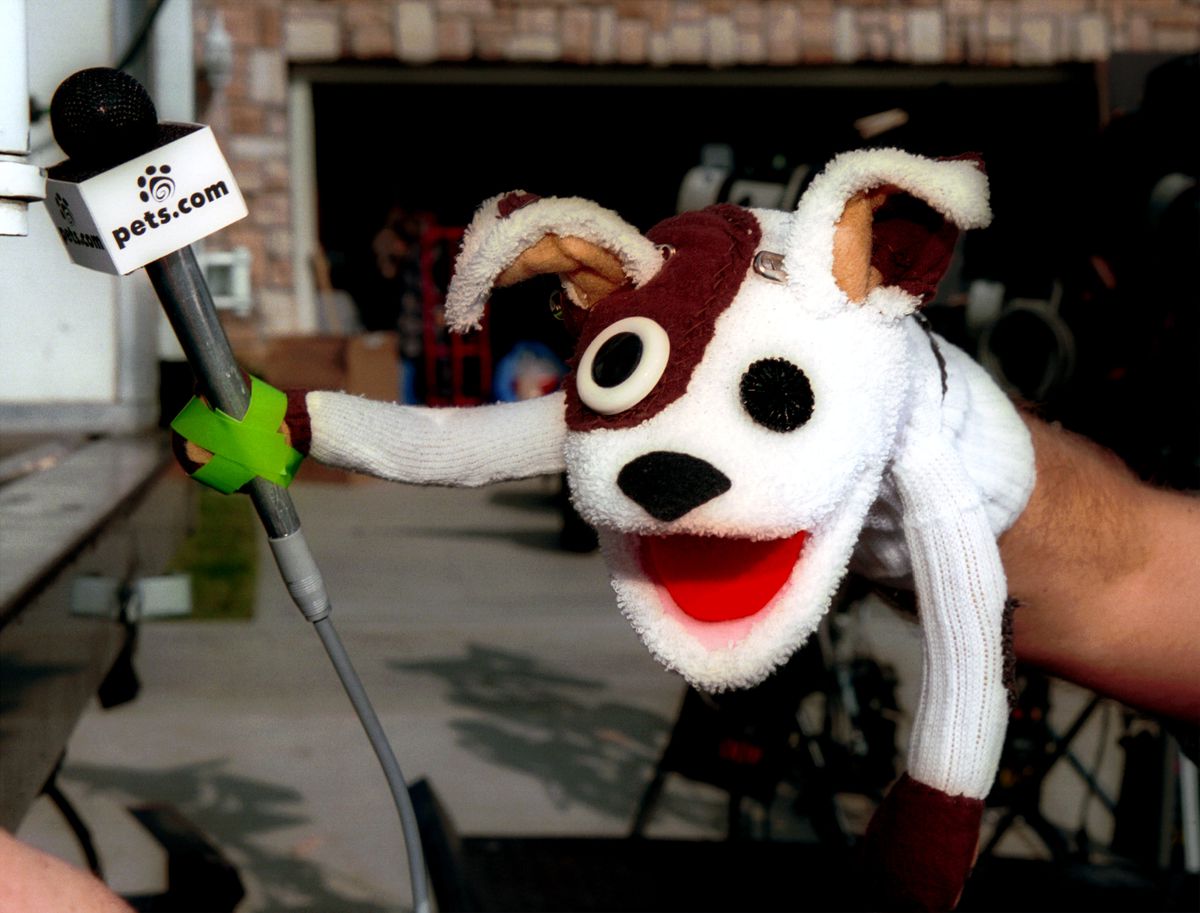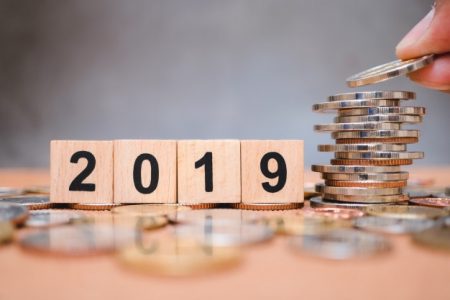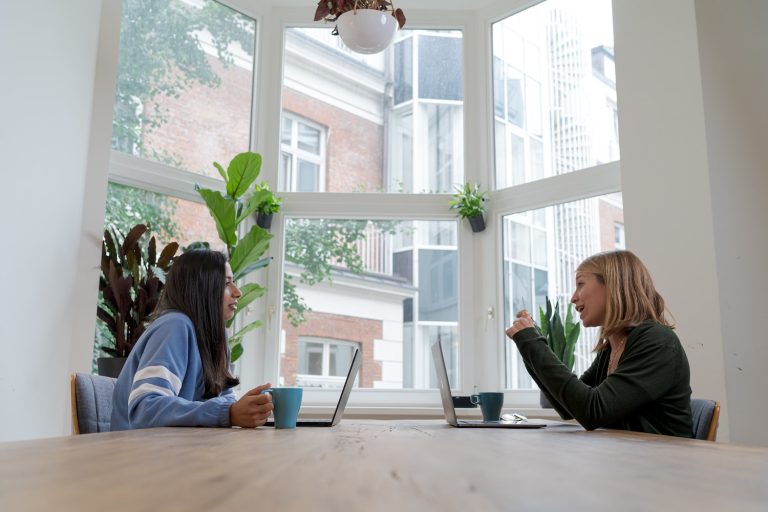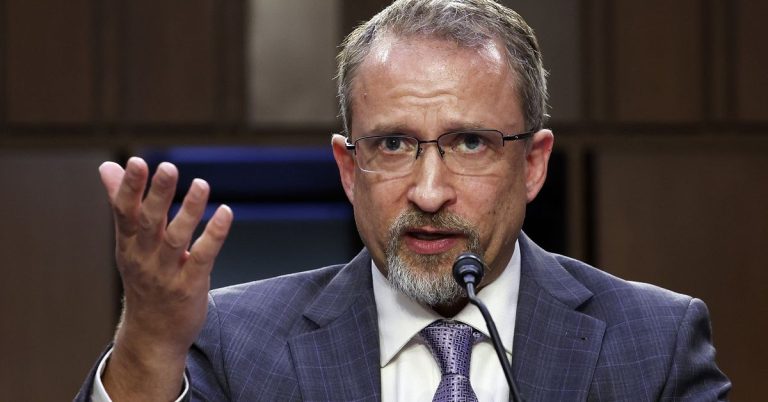At the center of the GameStop stock trading frenzy is Robinhood, a trading app for regular investors that says it’s out to “democratize finance.” But the growing chaos in the stock market is really testing the limits of that mission.
Robinhood, which is currently the most downloaded app on both the Apple and Google app stores, was founded in 2013 and launched in 2015. It has been a game changer in the retail trading space, largely because it allowed for commission-free trading, and others followed suit. Basically, that means when you buy or sell a stock on Robinhood — or on online brokerages like Fidelity, nowadays — there’s no charge. (Just because Robinhood does commission-free trading doesn’t mean it doesn’t make money. The company is valued at more than $20 billion and is set to go public early this year.)
In recent months, as day trading and individual investing have really taken off, so has Robinhood. If you don’t have a Robinhood account at this point, you might know someone who does.
So why is Robinhood in the news right now? Lots of people have gotten into trading lately, especially during the Covid-19 pandemic. They’re bored at home, many have money to spare, and trading can be fun, especially on Robinhood’s gamified platform. Reddit, TikTok, and Twitter are also spurring the trading trend and getting people into finance.
In recent days, traders have piled on to certain stocks — namely, the retailer GameStop — causing enormous amounts of volatility and some serious finger-wagging from Wall Street. Many of the trades are being made on Robinhood. The platform has made trading super easy and, some would argue, almost addictive, so that it feels more like gambling than it does investing. Now, Robinhood is being forced to address the frenzy around GameStop and other volatile stocks.
Robinhood received an enormous amount of backlash after announcing Thursday morning that the company was restricting trading on a number of stocks, including GameStop. Some users have joined a class-action suit against the company that says it manipulated the market by restricting trades, which caused users to lose money. Rep. Alexandria Ocasio-Cortez (D-NY) has called on Congress to investigate. In fact, the issue is bringing together all types of unexpected allies — including Ocasio-Cortez and Sen. Ted Cruz (R-TX). Well, sort of.
I am happy to work with Republicans on this issue where there’s common ground, but you almost had me murdered 3 weeks ago so you can sit this one out.
Happy to work w/ almost any other GOP that aren’t trying to get me killed.
In the meantime if you want to help, you can resign. https://t.co/4mVREbaqqm
— Alexandria Ocasio-Cortez (@AOC) January 28, 2021
Sen. Elizabeth Warren (D-MA) appeared on CNBC on Thursday to talk about GameStop. She weighed in on how Robinhood, which, like many similar firms, has people sign arbitration clauses that say they’ll solve disputes in arbitration instead of before a judge or jury. She also called for the Securities and Exchange Commission to have clearer rules about market manipulation.
“We need an SEC that has clear rules about market manipulation and then has the backbone to get in and enforce those rules,” Warren said. “To have a healthy stock market, you’ve got to have a cop on the beat.”
New York Attorney General Letitia James tweeted Thursday evening that her office is “actively reviewing concerns” about Robinhood’s GameStop activity. Around that time, the company announced it was restoring “limited buys” for the restricted stocks, sending their share prices back up in after-hours trading.
The SEC in a blog post Friday morning said it “will closely review actions taken by regulated entities that may disadvantage investors or otherwise unduly inhibit their ability to trade certain securities.”
On Friday evening, Robinhood explained that it restricted stock buying “not because we wanted to stop people from buying these stocks,” but because due to the volatility of those stocks, the company was required to come up with 10 times the deposit requirements it had a week earlier in order to execute those trades. To do so, the company had to quickly draw on a number of credit lines.
Robinhood helped bring about the latest day-trading revolution, and now it seems like the company is partially trying to stamp it out. It’s unclear how this debacle will affect Robinhood’s future.
Robinhood, briefly explained
Table of Contents
Robinhood is an app that lets investors trade stocks without paying a fee. Before Robinhood, people had to pay each time they bought or sold a stock. These fees presented a barrier to entry to many retail investors — regular people who are trading stocks, largely thanks to apps like Robinhood.
Since the advent of Robinhood, other online brokers like Charles Schwab, E-Trade, and TD Ameritrade have dropped their fees, but these companies aren’t as popular. Robinhood said it had upward of 13 million accounts as of last May, although with the recent retail trading boom, that number is likely higher now.
Typical account sizes range from $1,000 to $5,000. These sums aren’t enough to move a market alone, but en masse, retail investors have been shown to drive up certain stock prices.
Robinhood has not been without controversy. It has been criticized for gamifying trading and making investing feel like gambling. When you sign up, it offers you a free stock and encourages you to invite your friends to get more. The screen turns green when you’re up and red when you’re down, and when you trade, it sometimes sends you confetti and gives you the money instantly so you can trade again. It’s easy to see how people get sucked in fast.
Options trading, which gives traders the right to buy or sell shares of something at a certain period, has also become popular on Robinhood. It is a riskier and more advanced type of investing, and some investors are taking part without really knowing what they’re getting into. It’s not uncommon for retail traders to get into options, get lucky once or twice, and then get wiped out. In June of last year, one 20-year-old Robinhood trader died by suicide after believing he’d lost hundreds of thousands of dollars on the app.
In a statement to Vox last year, a Robinhood spokesperson said the company believes it’s “time to move away from the notion” that it’s gambling or gaming, and disputed that the app is gamified, instead saying that what it has is “accessible, modern design.” The spokesperson emphasized that the app doesn’t display confetti for every trade and disputed that confetti is a reward. Instead, Robinhood argued, the confetti feature is “celebrating the achievement” of participating in markets. The company also said most of its customers aren’t day traders, and that of the customers who trade in any given month, a small portion make options trades.
Still, regulators are taking notice. In December, the SEC fined Robinhood $65 million for not being clear with investors about how it makes its money. Massachusetts regulators have also filed a complaint against Robinhood.
Along those lines, it’s worth looking at how Robinhood makes money: by routing trades through brokerages that pay to make those trades. Big market-makers like Citadel Securities and Virtu Financial pay millions of dollars to process the trades and put them back onto the market. They, in turn, make money off the spread, which is the price difference between the buy and the sell. It’s good business for Citadel Securities, as the Financial Times laid out:
Easy access to the market against the backdrop of wild swings in prices have led to higher trading volumes for stocks and options this year — increasing the raw material Citadel Securities uses to turn a profit. At the same time, the rise in volatility has forced spreads wider, increasing the potential income for market makers.
The setup is also good for Robinhood, which made $100 million on fees from Citadel Securities and others in the first quarter of 2020. Basically, the few cents both Citadel Securities and Robinhood are picking up on transactions add up, especially with such high volumes.
In its complaint against Robinhood, the SEC warned that its “customers’ orders were executed at prices that were inferior to other brokers’ prices.” In an email to Vox last year, a spokesperson for Citadel Securities argued that they believe they, as market-makers, provide better prices for retail investors.
Still, the app enjoys the perception that it’s free, and its approach has brought many people to the stock market for the first time. Whatever the controversies around it, business is good for Robinhood.
It turns out there are limits to Robinhood’s democratization of finance
On Thursday morning, Robinhood announced it was restricting trading for GameStop, AMC, BlackBerry, and a number of other unlikely stocks that had been rallying after a coordinated effort by redditors to buy up stocks that had been shorted.
The effort, started on the popular subreddit r/WallStreetBets, has caused extraordinary stock price growth and points to the growing importance of retail investors. Even after Robinhood restricted trading, at market close Thursday GameStop stock was up more than 850 percent over what it was a month ago (it had been up 1,500 percent on Wednesday). AMC was up about 250 percent.
After Robinhood announced it would reinstate trading on those stocks Thursday evening, prices largely recovered. Robinhood raised $1 billion from investors overnight, which allowed the company to ease its restrictions, according to CNBC.
“By drawing on our credit lines, which we do all the time as part of normal day-to-day operations, we get more capital that we can deposit with the clearinghouses and that will allow us to enable, ideally, more investing with fewer restrictions,” Robinhood CEO Vlad Tenev told CNBC.
Meanwhile, hedge funds that bet against these stocks have suffered. Melvin Capital maintained huge losses and was forced to close out its short position. Shorts are when investors bet that a stock will go down. Essentially, when you short a stock, you eventually have to buy back the shares you borrowed and return them. If the trade works, you buy them at a lower price and get to keep the difference. But if the price of the stock goes up, it doesn’t work. At some point, you’ve got to buy the stock back and return it, even when the price is higher and you’re going to lose money.
The efforts have seemingly pitted professional traders against a pool of amateurs, but as Alexis Goldstein, a senior policy analyst at Americans for Financial Reform who formerly worked on Wall Street, points out, that narrative might not be right: More trading is good for lots of big Wall Street names that make money on retail trades. “It’s not David vs. Goliath. It’s Goliath vs. Goliath, with David as a fig leaf,” Goldstein wrote in her newsletter.
The hedge fund Citadel — which is a separate company from Citadel Securities but was founded by the same person, Ken Griffin — has also been involved in the current dustup over GameStop. It was one of two funds to inject $2.75 billion into Melvin Capital amid its GameStop short-sell troubles.
The rally around GameStop, AMC, BlackBerry, and others seems to be unrelated to the companies’ actual financials. GameStop, for example, posted a net loss of $275 million in the past 12 months, with the brick-and-mortar video game company struggling as game revenue shifts to online transactions. The movie theater chain AMC has had a rocky year as the coronavirus has kept people from its theaters.
Robinhood is not the only brokerage involved, but it has enabled a lot of the trading that’s happening as well as this gambling-like culture. Robinhood’s rise in the past few years is paralleled by the rise in popularity of the WallStreetBets subreddit.
It’s not entirely clear if the redditors’ efforts are legal. Charles Whitehead, a Cornell Law School professor who specializes in financial markets, told Recode it’s a gray area, but typically, proving market manipulation would require demonstrating some level of deceit.
“The fact that they’re doing this all so openly makes it much harder to show manipulation,” Whitehead explained.
It also depends on who is behind popular Reddit posts. As the Washington Post put it, “Federal securities law prohibits market participants from misrepresenting a company’s prospects to artificially affect its share price. With Reddit users cloaked in anonymity, there is no way of knowing whether messages touting GameStop come from average Joes — or scam artists executing a ‘pump-and-dump’ stock scheme.”
The SEC, which enforces federal securities laws, has said it’s monitoring the situation but has not asked the exchanges to halt trading these stocks. The SEC’s leadership is in transition after chair Jay Clayton left in December. President Joe Biden has appointed an acting chair until his nominee for the post, Gary Gensler, is confirmed.
In the meantime, Robinhood’s actions are likely protected by its terms of service, Whitehead said. Most likely, the app is hoping to avoid a PR disaster in the event that these stocks crash and amateur traders lose their savings.
What happens now? Nobody knows.
Due in part to the role Robinhood has played in this day-trading craze, the past week has been a wild one on the stock market. When and how it ends is hard to say. It’s easy to root for the little guys; it’s also hard not to worry that they’re taking on a lot of risk.
Many investors have likened the current frenzy to the dot-com bubble at the turn of the century. And there are a lot of similarities: new technologies, people excited about specific stocks, talking to others about them in chat rooms and on message boards. Appaloosa Management founder David Tepper made the analogy on CNBC on Thursday: “It was ‘party on.com’ in 1999 that screwed the shorts, and now it’s ‘gang up inc.’ It didn’t end well in 1999 when the dot-com bubble popped. Been there, done that. Old scars.”
Henry Blodget, the founder and CEO of Insider who was banned from the financial industry after the tech bubble, echoed the sentiment in an appearance on CNBC. “This is more than just an echo, this is a repeat of something we have seen again and again through history,” he said, later continuing, “I think we know how it ends. Call up some stock charts from 2000 to 2002 and you get a picture of how it is very much likely to end.”

In a world where wealth creation is difficult and the economy feels stacked against so many ordinary people, it’s hard to make an argument that traders shouldn’t be able to try their luck at the stock market through platforms such as Robinhood. And as much as Wall Street criticizes the redditors and Robinhood crowd for being reckless, it’s hard to argue that hedge funds, private equity firms, and big banks are the epitome of responsibility.
In the days, weeks, and months to come, there may be some turmoil on the horizon for Robinhood. It could face more legal challenges from users — the ones it had stopped from trading GameStop, but also potentially ones who lose a bunch of money if the bottom starts to fall out on some of these stocks. Traders could also close their accounts and exit the service en masse in the wake of the clampdown, but whether that will happen remains to be seen. In March 2020, amid major market turmoil, Robinhood experienced widespread outages, locking many traders out of making any changes to their portfolios. That didn’t kill the business — far from it.
Maybe this is an important lesson for the day traders on Robinhood; that ultimately they’re dealing with a private company with its own set of incentives. Robinhood’s stated mission is to “democratize finance for all,” but it’s pursuing that in service of making money itself, regardless of what happens to its traders.





